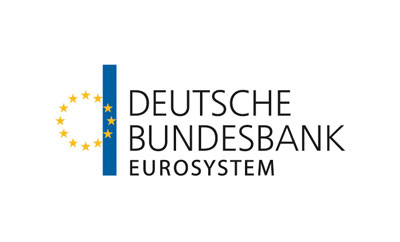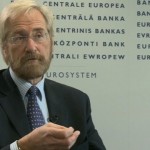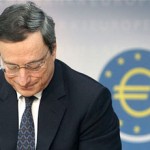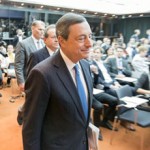Bundesbank Open to Significant ECB Stimulus in June if 2016 Inflation Forecasts Lowered

Germany’s central bank is willing to back an array of stimulus measures from the European Central Bank next month, including a negative rate on bank deposits and purchases of packaged bank loans if needed to keep inflation from staying too low, a person familiar with the matter said.
ECB staff inflation projections for 2016, which are due in early June, will be central to the Bundesbank’s appetite for additional easing steps, the person told The Wall Street Journal.
This marks the clearest signal yet that the Bundesbank, which has for years been defined by its conservative opposition to the ECB’s emergency measures to combat the euro zone’s debt crisis, is fully engaged in the fight against super-low inflation in the euro zone using monetary policy tools.
Following The Wall Street Journal report the euro slid to a fresh one-month low of just over $1.37 against the dollar.
The Bundesbank’s stance could provide critical support for ECB President Mario Draghi, particularly in Germany, when the ECB meets next month to weigh interest-rate cuts and other stimulus measures. Mr. Draghi put financial markets on notice last week that additional easing was possible against a backdrop of weak annual inflation which, at 0.7% in the euro zone, is far below the ECB’s target of just under 2% over the medium term.
Central banks typically strive for low inflation, which keeps borrowing costs down and provides a stable backdrop for households and businesses to spend. But when it is too weak debts become harder to service, and consumers may put off purchases in the hope that prices will fall.
“The Governing Council is comfortable with acting next time, but before we want to see the staff projections that will come out in early June,” Mr. Draghi said Thursday, after the ECB kept its key interest rates unchanged at record lows. “Certainly there is consensus or unanimity in not being resigned to the present low inflation for a too long, too protracted a time,” he said.
But the Bundesbank’s backing has limits. It remains resistant to large-scale purchases of public and private debt, known as quantitative easing, the person said. The Bundesbank has discussed this option internally but has concluded that with government and corporate bond yields already quite low in Europe, the purchases wouldn’t do much good and could instead create financial stability risks.
But the Bundesbank is still open to significant stimulus steps, the person said, including: reductions in the ECB’s lending and deposit rates; extension of unlimited loans to commercial banks—known as fixed rate, full allotment—from mid-2015 until mid-2016; offering new long-term loans to banks at a fixed rate to further beef up the ECB’s forward guidance; and some purchases of asset-backed securities.
Even without the large-scale asset purchases the Bundesbank’s list would pack a powerful punch. No central bank as large as the ECB has experimented with a negative deposit rate—the ECB’s rate is currently zero—which would effectively penalize banks for parking surplus funds at the ECB. The euro would likely cheapen as international investors cast a more wary eye on euro-denominated assets.
Meanwhile, extending the ECB’s provision of unlimited loans to banks well into 2016 would further cement the notion that the ECB will be far behind other major central banks such as the Federal Reserve and Bank of England when it comes to raising interest rates.
The Bundesbank is also open to extending additional long-term loans to banks at a capped rate, meaning banks could tap the ECB for funds without worrying about future interest-rate increases, the person said. Another option, the person said, would be to better target ECB loans to the private sector.
But these steps aren’t a done deal, and depend critically on the ECB’s forecasts for inflation through 2016 that are due when the ECB meets on June 5. The central bank currently expects inflation to average 1% this year, 1.3% next year and 1.5% in 2016. ECB staff economists expect that, by the end of 2016, inflation will be around 1.7%.
The Bundesbank expects forecasts for this year to be marked down.
If the ECB keeps its 2016 projections unchanged then Germany’s central bank would be reluctant to support new stimulus measures, the person said.
The number of steps on stimulus it would back depends on how far the 2016 inflation projections undershoot current estimates, the person said.
Source: WSJ



























